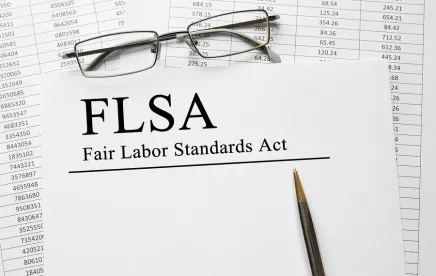In McEarchen v. Urban Outfitters, Inc., the Hon. Roslynn Mauskopf confirmed a report and recommendation from the Hon. James Orenstein decertifying a conditionally certified FLSA collective of Assistant Managers who claimed that they had been misclassified as exempt. See 13-CV-3569 (RRM) (JO) (E.D.N.Y. Sept. 6, 2017). The plaintiffs did not file any objections to the Magistrate Judge’s ruling in exchange for an agreement from Urban Outfitters to consent to a 60-day tolling period for the claims of the dismissed opt-in plaintiffs.
The Court reviewed the recommendation for “clear error” as to the determination of whether the named plaintiffs and opt-in plaintiffs were similarly situated. The Court considered: (i) the disparate factual and employment settings of the individual plaintiffs; (ii) the defenses available to defendants which appeared to be individual to each plaintiff; and (iii) the extent to which fairness and procedural considerations counseled for or against maintaining a collective action. The Court determined that each factor favored decertification.
First, the Court found “significant variations among the named and opt-in plaintiffs, as to both the amount of exempt work they performed and the level of managerial authority they exercised.” Second, the Court found that these variations would “make it unduly difficult for Urban to counter the claims against it using ‘representative’ proof. Third, the Court found the “differences in the various plaintiffs’ duties and levels of authority would require inefficient mini-trials for over a hundred claimants, such that a collective action would not enhance fairness or procedural economy.”
The Court also endorsed the parties’ joint request for a 60-day tolling period. The Court accurately noted that the statute of limitations would otherwise resume as against the claims of each dismissed opt-in plaintiff. The Court agreed that 60-days would be appropriate to avoid prejudice to the opt-in plaintiffs so that counsel to plaintiffs could adequately inform them of their legal rights and options.
While the McEarchen decision does not strike any new ground, it is, however, illustrative of the features that may convince a Court to decertify a collective action at the conclusion of discovery. In this case, the defendants developed a factual record during discovery that highlighted the differences in duties performed among members of the collective such that a determination as to exemption status could not be accurately made across the board. Employers faced with similar claims should consult with counsel early in litigation to develop a discovery strategy that should be rigorously adhered to with an eye towards achieving similar success.



 />i
/>i
